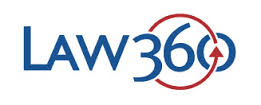More than 400,000 attorneys and other professionals follow legal issues daily in the United States as subscribers to Law360.com, one of the dominant legal news publishers in the U.S.
In September 2014, when the online legal source needed an expert to discuss language barriers with trial witnesses who do not speak English it contacted Criminal Defense Attorney Robert G. Stahl.
Stahl, a former federal prosecutor, has represented individuals and businesses in Russia, and foreign-language-speaking clients at his criminal law offices in New Jersey and New York City.
But the publication didn’t speak with Mr. Stahl for his foreign and metropolitan-area non-English-speaking clients’ experience alone. He also represents Dias Kadyrbayev, the exchange student from Kazakhstan who was charged with obstruction in connection with the aftermath of the Boston Marathon bombing in 2013, part of one of the highest profile criminal cases in the country.
In the Kadyrbayev case, Mr. Stahl extensively used translators for all court proceedings, including a lengthy suppression hearing, even though the client’s English language skills had dramatically improved during the course of his lengthy pre-trial detention.
Asked by Law360 how well translators completely explain what a foreign language-speaking witness has said, Stahl was quoted as saying, “…there are ways to deal with an overly dry translator.” One way, he said, was to have the translator testify and question him or her about how the speaker’s voice inflections should be interpreted.
“And as you’re reading that section of the transcript to the translator, use your own inflection and try to signal to the jury and show them that a voice inflection, or a tone, or a demeanor can change the meaning of that section or paragraph,” Stahl told Law360.




Leave A Comment